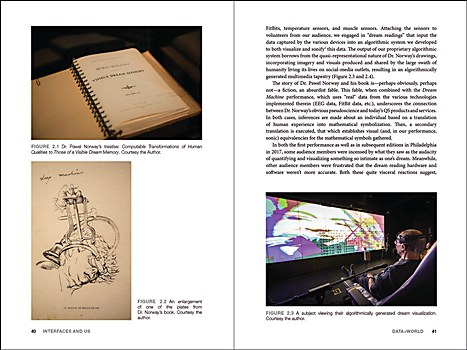By Zachary Kaiser
224 pages, softcover, $29.95
Published by Bloomsbury
bloomsbury.com
While the era of the internet of things and the fully teched-out smart home hasn’t quite manifested yet, we’re notably becoming reliant on algorithmically generated data to predict behavior. What author Zachary Kaiser, assistant professor of graphic design and experience architecture at University of Michigan, puts forward in his book Interfaces and Us is the question of how we concluded that data represents reality. With an intriguing claim that interface design often reflects the world we wish to live in—or the world we wish others would live in, by means of encouraging or discouraging certain interactions—Kaiser suggests that reading computer data for behavioral predictions emerges from a psychological need to unify the human experience and that we, as a species, are trending toward a universal set of cultural values emerging from using products designed to improve ourselves.
A generally multidisciplinary endeavor, Kaiser examines the concepts he outlines in his book through the lens of design but also through philosophy and politics, such as philosopher Zygmunt Bauman’s present-day interpretation of Marxist alienation as purely digital labor based solely on technical skill. He dives into the reward systems of the devices we use and discusses how their semiotics encourage us to become more productive members of society, as well as how capitalism ties productivity to health. As intriguing as these notions are, I can’t help but feel that this book better serves students and design educators rather than product designers at large corporations, but Kaiser presents an intriguing historical and philosophical exploration into UI design nonetheless. —Michael Coyne















